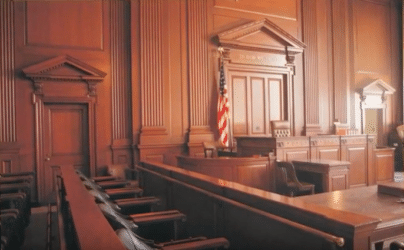Having an accurate court reporting service on hand is an important part of any trial, and Court Scribes is one of the best. But there are obviously a lot of other parties involved in making a trail successful: attorneys and their staff members, an impartial judge, and in the case of a criminal prosecution a jury of your peers.
But how does that panel of people hearing the case come to be seated?
 The Sixth Amendment of the United States Constitution grants criminal defendants the right to a speedy and public trial by an impartial jury representing a cross-section of the community. The right to a jury only applies to offenses in which the penalty is imprisonment for longer than six months.
The Sixth Amendment of the United States Constitution grants criminal defendants the right to a speedy and public trial by an impartial jury representing a cross-section of the community. The right to a jury only applies to offenses in which the penalty is imprisonment for longer than six months.
The jury’s job is to review the evidence presented in a trail and deliberating then coming to a conclusion about what the penalty for the accused should be.
Jury selection happens in two parts, random selection and “voir dire,” when attorneys question potential jurors to see if they are suitable to sit on that specific jury.
In the random selection process, the state or federal district chooses names randomly from lists including rosters of registered voters, people who hold driver’s licenses in the state, or people receiving unemployment benefits, for example, according to findlaw.com.
People who are randomly selected from one of these lists will receive a notice in the mail telling they will be expected to report to serve on a certain date.
“Voir Dire” is the process the court and the attorneys use to narrow down the pool of candidates to 12. Sometimes a judge will randomly excuse some people from duty if there are too many.
But usually, during the voir dire process, the judge and attorneys will interview each juror about their background and beliefs and look for reasons to object to jurors. The two types of objections include “peremptory challenges” and “challenges for cause.”
When an attorney challenges a juror for cause, it usually means there is something in the juror’s background that would prevent them from being objective about a case. In federal courts, each side has an unlimited number of challenges for cause, but each side only gets a limited number of peremptory challenges. Attorneys do not need to give reasons for peremptory challenges.
